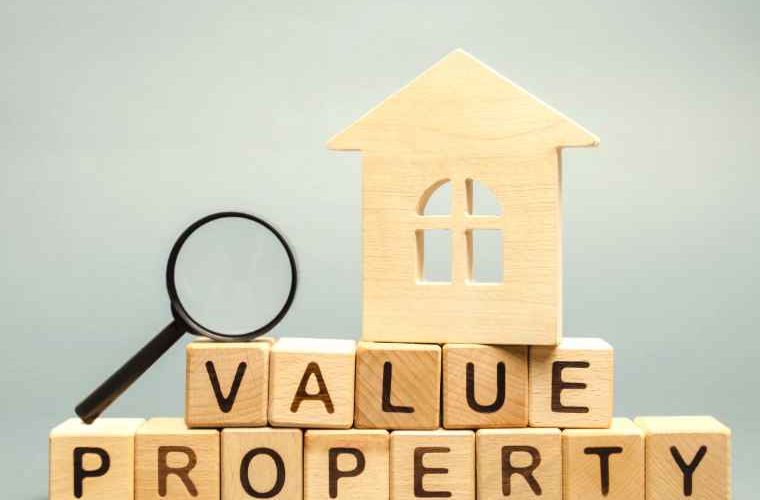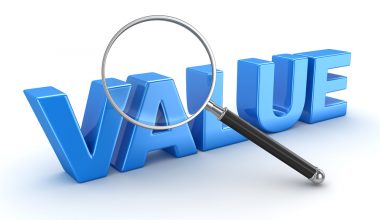There are a variety of reasons why you might require a property valuation, particularly if you’re selling or purchasing a home. Let’s look at free online commercial property valuation and types.
A property valuation is an estimate of the value of your home based on its location, condition, and a variety of other variables. In terms of valuation, the location is very crucial. However, because property cannot be relocated, the value of a home is frequently affected by modifications or enhancements. Mortgage loans, estate settlements and divorces, taxation, and other matters all rely on appraisal reports. When determining the sale price of a property, there may be a need for an appraisal report. A professional surveyor will do your value in person, taking notes and photographs, and then sending you a valuation report. Not relying solely on the information you get from the online tools. It is still vital that a professional appraiser give you an accurate estimate of your property’s worth.
Why Is Valuation Important?
- If you’re buying or selling a property, you’ll need to know how much it’s worth, but that’s not the only reason.
- Lenders, investment bankers, and venture capitalists will want to know how much your property is worth if you’re searching for funding.
- If you’re in a partnership and one of the partners wants out, you’ll need to figure out how much their stake of the property is worth.
- In the event of a divorce, a property assessment may be required in order to split marital assets fairly.
Online Property Valuation
All of the online tools rely on publicly available data, which is then processed using computer algorithms to generate value estimations. The exact data that is used, as well as the formulae that are used to crunch it, is confidential. Although, public records and multiple listing services used by real estate brokers are among the data sources. The amount of data available also influences the estimate’s accuracy, because the amount of data differs by town and, in certain cases, by home. Here are online property valuation tools you can use to help you estimate the value of your home:
#1. Zillow
Zillow is one of the largest and most popular online property valuation websites for tracking the value of your house. Hence, the nicest element of Zillow is the site’s style and ease of use.
You may acquire a Zestimate a Zillow-created estimate of your home’s value by simply entering your home’s value into the website’s user-friendly interface. You may use the website’s consumer-friendly tools to not only find out how much your property is worth but also to look for properties in your region.
How to figure out how much your house is worth:
Simply enter your address, and Zillow will tell you whether or not your home has a Zestimate. You can also register an account, claim your home, and receive frequent valuation updates.
#2. Redfin
Redfin Estimate is another website that has gained popularity among real estate aficionados and homeowners. With Redfin, you can discover about the nearby area, a property’s “walkability,”. As well as how much property taxes cost each year by entering a few data about it.
Furthermore, according to financial advisor values on this website may be slightly more accurate. As a broker, Redfin calculates your property’s current market value using the most accurate data from the Multiple Listing Service (MLS).
To figure out how much your house is worth:
Simply put your address into the search bar on the homepage. Then select “See Home Estimate” to get an instant estimate of your home’s value. They provide you a summary of how they arrive at their estimates while calculating.
#3. Eppraisal.com
Eppraisal.com functions similarly to the other sites on this list, providing its own valuation estimate in certain circumstances. Apart from house prices, Eppraisal also provides online property valuation information about adjacent homes that have been sold recently. As well as current refinancing rates and other information.
You can access all of this property valuation informations for free at Eppraisal.com. Without you giving your email address.
#4. Realtor.com
While Realtor.com may appear to be a website for real estate professionals, anyone can use it for free. Simply enter your address on the site’s homepage to get a variety of information, including a pricing estimate for your property.
You’ll learn about the local schools, median listing prices in the area, and even property tax assessments in addition to a pricing estimate. This tool is also useful for determining the value of your neighbor’s home and the amount they may be paying.
You may get an instant estimate by typing your location into the search field and selecting “Home Worth”. You can also sign up for an account, claim your home, and receive regular updates on its value.
Free Property Valuation
In recent years, a plethora of internet sites have sprung up to give you answers before you consult an appraiser. While homeowners now have access to more information than they could have imagined. You don’t expect a computer or smartphone to give you the last word on your home’s worth though they can provide some useful insights. Let’s look at the free online property valuation tools to find out the best value for your property.
#1. Trulia
Trulia.com is a free online valuation tool that kinda works in the same way as Zillow does. When you get to the website, you may enter your address to find out how much your house is worth. Trulia, on the other hand, provides the average listing price for similar houses in your region rather than a Zestimate.
Trulia also provides the average list price for all homes in your neighborhood. As well as typical statistics about your home, such as square footage, lot size, and bed/bath information. If you want to refinance your house, Trulia can assist you with its own approved lender network.
#2. HomeGain.com
While HomeGain.com is primarily a property valuation search engine, one of their widgets allows you to estimate the value of your own home for free.
#3. ForSaleByOwner.com
While this site was designed to assist homeowners in advertising and marketing their own houses instead of using a realtor, it also provides various resources that any homeowner can benefit from.
Their property valuation Pricing Scout tool is completely free and simple to use. After you sign up, you will receive an estimate of the market value of your house. You get this based on previously sold comparable properties in your region, as well as a summary of local real estate features.
#4. Chase Mortgage Services
While it may appear unusual, Chase Bank has its own home property valuation tool available online for free. Simply input your home address, state, and zip code to find out how much your house is worth.
Instead of providing a precise estimate, Chase provides a price range in which they believe your home falls. This is a wonderful tool to experiment with because it also provides an estimate of all of your neighbors’ home values. Best of all, it’s free, simple to use, and doesn’t require any personal information.
Types of Property Valuation
During the buying or selling process, you may come across various distinct sorts of valuation, each serving a particular function. Here are various types of property valuation you should take note of.
#1. Property valuation
A property appraisal shows you how much your house is worth if you were to sell it. For residential property, the process is often extremely simple – you can do this through an estate agency.
#2. Online Valuation
It is feasible to obtain an online valuation from the comfort of your own home. This calculation is done by a computer (not a human) depending on your location, property type, and current market pricing. They can be used as a very rough reference to provide you with additional information when selling your home. You should also keep in mind that they may as accurate as a property appraisal.
#3. Matrimonial Valuation
In divorce or separation procedures, matrimonial valuations are used by the courts to decide how the couple’s assets will be distributed. These are often carried out by a licensed surveyor or valuer who has been jointly selected by the divorcing spouse, and their report is submitted immediately to the court.
#4. Probate Valuation
Following a death, you may need to obtain a probate valuation of any property or assets owned by the dead in order to calculate inheritance tax. The government (through HMRC) strongly advises hiring a professional surveyor for this.
#5. Mortgage Valuation
A mortgage valuation, also known as a simple value, typically consists of a fast half-hour survey of the property that covers any evident faults without delving too far.
When you apply for a mortgage, the lender will make its own estimate of the worth of the house you want to buy in order to make a preliminary decision on how much they’re willing to lend you for a mortgage – but more crucially, it might offer you a very approximate sense of how much you should be spending.
When selling or purchasing a home, it is critical to supplement the mortgage valuation with a proper building assessment from a professional surveyor – determine whether you will need a homebuyers report or a building survey.
#6. Retrospect Valuations
A retroactive valuation, which establishes the worth of your home on a given date in the past, maybe required for tax purposes, if you are involved in legal processes, or if you need to establish a value for probate.
#7. Taxation valuations
If your transaction is subject to capital gains tax, a tax valuation will assist you in determining how much you must pay. Understanding what you owe in capital gains tax can be difficult, which is why many people hire a professional valuer. In order to calculate stamp duty, the Inland Revenue may also need a professional tax assessment to be provided in writing.
#8. Expert Witness Valuations
If you are involved in property dispute litigation, an expert witness can give a professional, trustworthy survey that may be submitted to or rely on in court. This comprises a value, a list of any concerns or defects with the property, and information regarding your lease.
#9. Insurance Valuing
When a surveyor evaluates your home, he or she may also perform an insurance appraisal. The goal is to determine the insurance worth of your property based on whether it would cost more to rebuild than the average market construction price if it was bulldozed, burned down, or damaged beyond repair.
#10. Building Reinstatement Valuations
This is part of your insurance appraisal – calculating the cost of rebuilding your property if it is damaged beyond repair, including any insurance risks.
Commercial Property Valuation
To arrive at a valuation, specific data pertaining to commercial property. As well as general statistics pertaining to the nation, region, city, and neighborhood in which the property is located are collected and examined. To determine the value of a commercial property, professional appraisers utilize one of these methods.
Method 1: The Sales Comparison Approach
This is a method of estimating a property’s value by comparing it to recently sold properties with similar attributes.It’s also known as the market data approach. In the commercial valuation appraisal process, at least three or four comparables should be considered. When choosing comparables, the most important aspects to consider are size, comparable characteristics, and – probably most importantly location, which can have a significant impact on a property’s market value. Comparables are properties that have similar characteristics and must meet the following criteria in order to make a legitimate comparison:
- Building age and condition
- Home size
- Lot size, landscaping, building kind and quality, number and type of rooms, square feet of living space, hardwood flooring, a garage, kitchen upgrades, and other physical amenities.
- Amenities in the house
- The desirability of a location
- Proximity to the home in question (the closer, the better)
- Sale date: If there are economic changes between the date of sale of a comparable and the date of the appraisal, the date of sale is used. ( so, the more recent, the more accurate)
- Terms and conditions of sale, such as whether the seller of a property was under duress or whether the property was sold between relatives (at a discounted price)
In property valuation, the subject property’s market value estimate will fall within the range defined by the adjusted sales prices of the comparables. Because some of the modifications made to the comparables’ sales prices will be more subjective than others, the comparables with the least degree of adjustment are usually given more attention.
Method 2: Cost Analysis
The cost approach can be used to determine the worth of properties that have had one or more buildings added to them. This method entails estimating the worth of the building(s) and the land separately, taking into account depreciation. The total value of the improved property is calculated by adding the estimations together. The cost method assumes that a reasonable buyer would not pay more for a renovated property than it would cost to purchase a comparable lot and build a comparable structure. When the property being appraised is a type that isn’t commonly sold and doesn’t create income, this method is effective. Schools, churches, hospitals, and government buildings are all examples.
Method 3: The Income Approach
This method, also known as the income capitalization approach, is based on the link between the rate of return required by an investor and the net income generated by a property. It’s used to figure out how much income-producing properties like apartment complexes, office buildings, and shopping malls are worth. When the subject property is expected to generate future revenue and its expenses are predictable and consistent, income capitalization appraisals can be quite simple.
The ability to create money is what determines the value of various properties, such as apartment complexes or office buildings. It seems sensible to estimate the worth of these properties based on their earning potential. Direct capitalization and the gross income multiplier are two options.
Direct capitalization
Apartment buildings and commercial properties use direct capitalization.
Gross Income Multiplier
For single-family rental properties and small multifamily rentals, use the gross income multiplier.
Examples
An Appraiser is tasked with valuing a four-unit rental building. He tries both approaches of valuing income properties. He utilizes the following math when using the direct capitalization method:
- Annual gross income: $48,000 ($4,000 per month) –
- Expenses each year: $20,000
- $28,000 in net operating income
- The local cap rate is 8%.
- $28,000 x (100/cap rate) = $350,000 estimated value
- The gross income multiplier approach is then used. Local rental properties are selling for about 85 times the rent, he discovers. As a result, here’s how to do it:
- Rent of $4,000 per month multiplied by 85 equals $340,000.
The straight capitalization approach is similar, but not identical. In this scenario, the Appraiser’s best judgment will determine which calculation is more appropriate and correct.
Price per door
This commercial real estate appraisal approach is most commonly utilized for apartment buildings rather than single-family homes. This approach simply determines the value of the entire structure based on the number of units. A $4 million apartment complex, for example, would be valued at $200,000 “per door,” regardless of the size of each unit.
Cost Per Rentable Square Foot.
Rentable square footage mixes usable square footage (the space tenants can occupy) with shared areas such as stairwells and elevators. Using this method, you may extrapolate the cost per rentable square foot, compare it to the average lease cost per square foot, and determine the worth of the building.
For example, if a property has 10,000 rentable square feet and the average cost to rent per square foot is $12 per square foot per year, a $1.7 million purchase price will give a 7% gross rental return. However, if you know you can demand $14 per square foot in annual rent, a $1.9 million valuation will offer the same gross return.
Value Per Gross Rent Multiplier
The Gross Rent Multiplier (GRM) valuation method calculates and analyzes a property’s potential value by dividing the purchase price by the gross revenue. In other words, if you paid $500,000 for a commercial property that generates $70,000 in gross rents each year, your GRM would be 7.14, or $500,000 / $70,000. This commercial real estate valuation formula is commonly used to find properties with inexpensive prices in relation to their market-based potential income.
FAQ
What are the 5 methods of property valuation?
When evaluating a property, there are five key methods to consider: comparability, profits, residual, contractors, and investment. When determining the market or rental value of a property, a property valuer can utilize one or more of these approaches.
Is it worth getting a property valuation?
If you’re buying a house, home appraisals can help you figure out whether you’re getting a decent deal or not. If you’re selling, property valuations can help you figure out whether or not it’s worth it to sell your house, as well as what amount to ask.
How do you calculate the value of a property?
To determine the current worth of a property being evaluated for acquisition, a standard valuation approach combines income and the capitalization rate.
Related Articles
- Business Valuation: All you need to know [Detailed Guide]
- Comparative Market Analysis: Real Estate Management
- COMPANY VALUATIONS: Methods, Definition, and Importance of Valuations
- HOUSE FORECLOSURE Explained!!! (+ Detailed guide to buying Foreclosed homes
- FORECLOSURE LISTINGS: How to find Free Foreclosure listings stress-free






